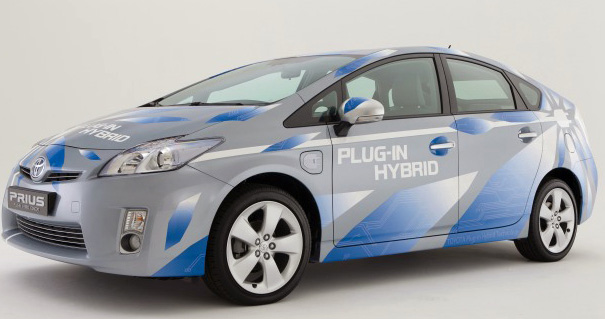 The Toyota Prius is one of the most successful hybrid vehicles in America. Many consumers have been calling for Toyota to make a plug-in hybrid version of the Prius that would allow fully electric driving on battery power alone.
The Toyota Prius is one of the most successful hybrid vehicles in America. Many consumers have been calling for Toyota to make a plug-in hybrid version of the Prius that would allow fully electric driving on battery power alone.
Toyota announced early in December that it was starting the production for a test fleet of plug-in hybrid Prius vehicles. The Japanese automaker also said that the production run for the test program would be 500 vehicles and that they would use first generation lithium-on battery packs.
Toyota has now officially launched the program and is set to get about 600 plug-in Prius’ onto the market globally with retail sales by 2011. Toyota will lease about 230 of the vehicles to government ministries and corporations like power companies and other industries in Japan. Of the production vehicles, 150 of them will make their way to the U.S. to be leased to government agencies, corporations, universities, and research agencies. Europe will get 200 units with 100 of the cars going to the City of Strasbourg in France.
The plug-in Prius will be connected to an AC outlet in the home to charge and the new lithium-ion battery packs that replace the standard Prius’ nickel-metal hydrid batteries will give an all-electric driving range that is optimistically pegged at 13 miles.
Autoblog Green reports that the plug-in Prius will be rated at 134 mpg, but about 50 mpg is expected in real world use. The Prius was able to run 14.5 miles on the Japanese JC08 cycle before the battery was dead. Presumably, like the standard Prius, the electric motor will kick on when needed for acceleration and at other times. Toyota offers no hard details on how the new powertrain will operate. Toyota hopes to sell tens of thousands of the plug-in Prius’ to the public within two years.
Toyota’s Irv Miller said earlier this month, “This program is a necessary first step in societal preparation, in that it allows us the unique opportunity to inform, educate, and prepare customers for the introduction of plug-in hybrid technology. When these vehicles come to market, customers must understand what to expect and if this technology is the right fit for them.”
Editors' Recommendations
- Toyota joins ‘the Tesla plug’ club
- 2024 Mercedes-AMG S63 E Performance first drive review: high-performance plug-in
- 2022 Toyota Tundra hybrid first drive review: New dog, old tricks
- Toyota announces site for its first U.S. battery plant
- 2022 Toyota GR 86 first drive: Old-school thrills meet modern tech


